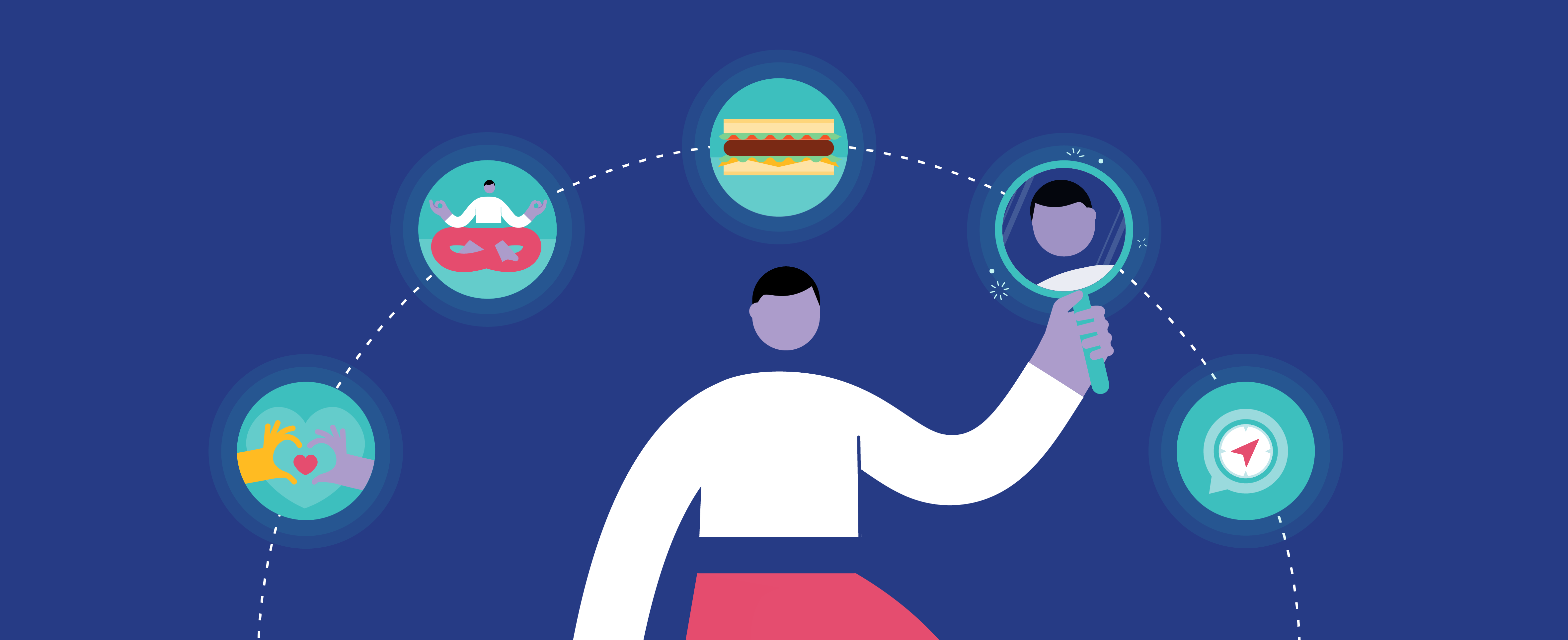Emotional Intelligence in Leadership: A Fresh Perspective
Emotional intelligence in leadership and emotionally intelligent leaders. There’s an abundance of articles online from various sources. So, instead of a blog written for leaders, from leaders, let’s look at it from another perspective.
First, a little background.
In the throes of blog research, I came across a 2003 Harvard Business Review article, Breakthrough Ideas for Tomorrow’s Business Agenda. The part that stood out was “In hard times, the soft stuff often goes away. But emotional intelligence, it turns out, isn’t so soft.”
This really resonated, but not before I had a flashback of my adult working life. I’m going to be honest, there are some ‘if only I had known that then’ moments.
So, I did what any geriatric millennial does – I put on the Top Hits of 2003 Spotify playlist (you’re welcome), had a desk groove and reflected: there are always going to be hard times. There was this global pandemic thing and now we have a cozzie livs crisis.
What would have helped me for the hard times in my working life? That’s when it came to me.
I really could have used fairy godmother in those early days to enlighten me on emotional intelligence. Not only to help me make sense of things but also how it makes for more productive team work and better relationships.
|
|
So, here I am. Your emotional intelligence fairy godmother. By the way – in my head I’m wearing pink and look FABULOUS! |
The nitty gritty
For me, Daniel Goleman is the godfather of emotional intelligence. In his book Emotional Intelligence: Why It Can Matter More Than IQ he outlines five components of emotional intelligence:

Given the book I pulled off the shelves at Inspire Group was published in 1996, I wish I had known about this so much earlier!
Aidan Stoate, our Inspire Group Aotearoa CEO sums it up nicely:
Emotional intelligence is recognising that we are all fallible, and showing courage to admit this and create opportunity from it is where great leadership begins.
Know when to admit your mistakes, but more importantly, openly communicate what you’ve learned from them. No leader is perfect, and usually the ones with the most obvious capability gaps are those who show little vulnerability or lack the appetite to improve.
 |
Now before we go any further, get comfy, grab a drink and allow your emotional intelligence fairy godmother to break it down for you (with some help along the way). |

1. Self-awareness: Mirror, mirror…
Self-awareness is like holding up a mirror to see your own thoughts, emotions and behaviours clearly. It’s important because, when you’re aware of your emotions and behaviour, you understand how they impact your performance and the influence this has on your relationships in the workplace.
When you know yourself, you know your emotions, strengths, weaknesses, values and motivations. This comes easier to some people than others and for me personally, it was a big confidence thing to get comfortable with the discomfort that is knowing my weaknesses.
What’s the benefit of this? When you know yourself, you get a read on your feelings and how they not only impact your behaviour and decisions, but those around you too. You can recognise your emotional state.
Don’t just take it from this fairy godmother. I asked Ulrika Brunner, our Inspire Group Asia CEO to sprinkle some fairy dust of wisdom:
To my younger self: your instincts – you are a natural. I had no self-confidence and didn’t realise what a high level of emotional intelligence I had until I did an EQ-I certification in my thirties. Maybe if I had known earlier on, I could have found my true purpose much sooner… but no regrets – I’m here now!
If you’re struggling to wrap your head around self-awareness, the best way to explain it is to think about impulse purchases. They are a thing. You get swept up in the moment and your judgement gets a bit foggy. Impulse decisions and actions are the same.
When you can recognise your emotional state, you will be able to pause and avoid making impulsive decisions based on temporary feelings. It’s like putting something in your online shopping cart and leaving it there, rather than buying it straightaway.
What’s the benefit? You’ll be able to be more thoughtful and make strategic choices. Something that will most definitely set you up well for the future. Kind of like being a leader, before you have the job title.
 |
How to get there? Spoiler alert: there are no shortcuts. We all come into this with different levels of self-awareness. The best advice I can give you is to spend time self-reflecting and seek feedback from those around you. |

2. Self-regulation: Keep calm and carry on stay composed
Have you ever had a moment when something not great has happened at work?
*Puts hand up.*
How did you react? That’s a rhetorical question, because this fairy godmother has most definitely had her moments.
My advice to you as your fairy godmother? Think of a thermostat and how it keeps temperature steady. Self-regulation is your emotional thermostat, helping you stay calm and composed.
Self-regulation builds on self-awareness. So no, you can’t ignore the first chapter of emotional intelligence and skip ahead. You can only manage your emotions and behaviours effectively once you're aware of them.
Why might you ask? Not only does it set you up for the future when you have more responsibility, team members and all that jazz, but right now it will help you foster trust and respect with others and help you navigate conflicts and setbacks without losing sight of things.
This is where the saying ‘check yourself, before you wreck yourself’ comes in real handy.
Don’t take my word for it. As your fairy godmother, I asked our Group CEO, Dan Tohill for some words of wisdom:
Regulate your emotions. When preparing yourself for a stressful meeting/conversation think about what you can do to chill yourself out so you’re in control, calm and can have as productive a meeting as possible. Go for a walk, go to the gym, don’t schedule these meetings at certain times of your day or week.
I also like cuddling the cat or putting on some music and dancing. You do you though.
Some other things you can try are to pause before reacting – that stops those impulse moments. You can also try your hand at mindfulness techniques. I’ll be honest, these aren’t my jam, but they might be yours. Give them a go! There’s lots of great mindfulness techniques or guided meditations out there.
 |
Before we move on, while I can’t wave my wand and make self-regulation happen for you magically, I can share that, like all good things, self-regulation takes practice. Take small steps. |

3. Motivation: Fuel the fire
I don’t know about you, but I get hangry if I don’t have breakfast. I remind myself each day that it’s worthwhile spending the time to have something to eat because it fuels my morning.
So, how do you fuel your work engine? Motivation. Think of motivation as the fuel that powers your work engine. It’s how you drive forward with energy and determination to reach your goal.
As your fairy godmother, I need to be real: your engine can be situational. I’ve been in a job I didn’t love where my engine was comparable to my first car – a 1989 Ford Laser. It did the job, but only just.
I also think back to people I’ve worked with in the past that were super motivated. What set them apart? They set high standards, showed enthusiasm for their work and persisted through challenges.
Inspire Group Australia CEO, Stu Neighbour has some magical advice when it comes to motivation that I think you’ll want to hear:
It’s pretty simple – whatever you’re curious about – follow it. It’s your brain’s way of saying it’s interested. It doesn’t matter what the subject is, or whether it’s 'cool' or not or what your family think you should be curious about – follow that firefly wherever it may lead.
Whatever you make that fills your bucket – do more of that. Take your time, you have way more than you think. Make more mistakes and take more risks – it’s how we learn and figure out who we truly are. Don’t worry about getting things right. Just give it a go and 'Damn the torpedoes'.
|
|
I love this sentiment as it’s based on what intrinsically motives you. It also reminds me that I can’t wave my wand and you’ll be magically motivated. This is something that you’ll need to figure out for yourself. If you only take away one thing let it be that while negativity can be catching; curiosity, creativity, passion and commitment are contagious. |

4. Empathy: See through the eyes of another
Alfred Adler, founder of the school of individual psychology, wrote, “Empathy is seeing with the eyes of another, listening with the ears of another and feeling with the heart of another.”
I like it. Why? For me, empathy is like a window that lets you see into another person's world. When you have empathy you can walk in their shoes, understand their feelings and just get their perspectives.
It’s an extension of self-awareness but focused on others.
When I started my working career, my thoughts were a little black and white – people were either nice or not. Why did I think this way? I won’t lie, everything was about me. I didn’t have self-awareness or self-regulation (see how I weaved it in there…). Come to think of it, I didn’t have a fairy godmother and that makes me really sad!
What I understand now is that the best leaders lead with empathy. Empathy doesn’t make them weak; it makes them strong.
How to be like them? Here are some skills that I reckon if you practice and work on, you’ll be well on your way.
- Active listening. There’s a big difference between listening to someone and hearing them. Listen attentively without immediately judging or responding.
- Be compassionate. Show genuine care and concern for others and offer them support when needed.
- Read cues. You know when someone says, ‘read the room’, it’s just this. Be aware of non-verbal cues such as body language and tone of voice, so you can tailor your communication style appropriately.
- Think deeply. It’s not just about you. Let the others express their ideas, views or concerns. Taking this in will lead you to making more inclusive and well-rounded decisions.
 |
As a fairy godmother I’ve been known to put down my wand and relax with a book. One of my favourite non-fiction books is Brianna Wiest’s 101 Essays That Will Change The Way You Think. For me, this is all about looking at things with a different perspective. In one story titled ‘You are a book of stories, not a novel’ a quote stood out. I’ll leave you with it – for me it really sums up empathy. |
‘Life isn’t a sepia-toned flashback. Life is vivid and changing and real and unpredictable. Unchartable. With no other plot than the one we’re living in the moment, here and now.’

5. Social skills: Your internal compass
The final piece of the puzzle? Social skills. These are like a compass, guiding you through interactions and helping you navigate relationships.
Social skills bring together the other components: self-awareness, self-regulation, motivation and empathy. Now, don’t go putting yourself into a category like introvert or extrovert. The type of social skills I’m talking about is how you put those other emotional intelligence competencies to use, in your own unique way.
Why is it important? Along my own journey to becoming your fairy godmother I’ve learnt that leaders with strong social skills can build networks, encourage teamwork, collaborate, inspire and influence those around them.
There’s lots of different things you can do to work on your social skills, but here’s my top three sprinklings of fairy dust to help frame your thinking.
- Model emotional intelligence by showing self-awareness, self-regulation, empathy and motivation in your daily interactions.
- Communicate clearly and openly. Make sure people understand you.
- Think through the action you will take, before taking it.
On that last point, Aidan Stoate has conjured this good advice that you can put into practice:
Ask your future self how you’ll feel about a course of action before taking it. One of my tactics when thinking about what or how I’ll communicate is to test how I would perceive it 24 hours from now – if I think it might be inappropriate, contentious, insensitive or open to interpretation, I’ll rethink it or reframe it!
 |
Personally, I love this as you really are being self-aware and self-regulating when doing this! It’s a great skill to have throughout your career and then as you step into being a leader. Especially when you have more decisions to make and more at stake. |
Where to from here?
It’s totally ok if you’ve got to this part and are thinking ‘what the heck do I do next?!’.
My advice is to start small. Start with one small positive thing you can do, maybe that is getting some feedback from those around you. This will lead to another, then another. This is known as a positive snowball effect.
Other things you can try are:
- Keep a journal of how your emotions influenced you in decision making, interactions and meetings. Don’t forget to reflect on these either!
- Do an emotional intelligence self-assessment. I like Psychology Today’s free test as a starting point.
- Try an online course. Udemy and coursera have a plethora of courses available as a starting point.
I wouldn’t be your fairy godmother if I didn’t leave you with one last magical piece of advice.
|
|
Remember that emotional intelligence isn’t a fixed trait. It’s a set of skills that can be developed and refined over time – a bit like muscle memory. Keep working on your emotional intelligence. By doing so, you’ll set yourself up for the future and be flexing leadership skills long before you have the job title. |
About the author
Emma is our lead learning designer who thrives on a challenge and a good dose of chocolate. She makes learning fun and engaging, with a great balance of creativity and attention to detail. She’s also fantastic at building strong client relationships thanks to her solid experience in learning design. When Emma's not designing magical learning experiences, you can find her in the dressage arena, cuddling her cat Sweetie or doing a spot of sewing.






